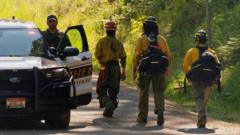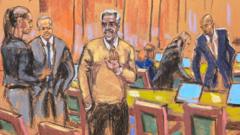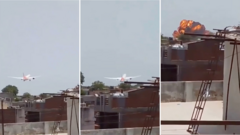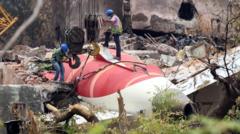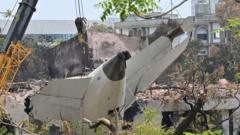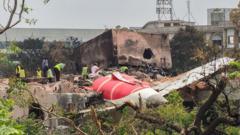With the election of a new pope at the forefront, abuse survivors critically assess Pope Francis' legacy regarding clergy sexual abuse. While some acknowledge incremental reforms, many believe the Church's handling of abuse cases remains inadequate and demand greater accountability for perpetrators.
Survivors Demand Action as Questions Linger Over Pope Francis' Response to Clergy Abuse

Survivors Demand Action as Questions Linger Over Pope Francis' Response to Clergy Abuse
As cardinals convene to elect a new pope, many survivors of clergy abuse reflect on whether Pope Francis did enough to address systemic issues within the Catholic Church.
As the Catholic Church prepares to elect a new pope, the legacies and responses of past leadership are under scrutiny, particularly concerning the church's handling of sexual abuse. This pivotal moment brings forward the voices of abuse survivors who continue to express dissatisfaction with how Pope Francis addressed these issues during his papacy.
One survivor, Alexa MacPherson, shared her harrowing story of sustained abuse from the age of three by a Catholic priest named Peter Kanchong. MacPherson's experience underscores a painful history, revealing that her abuse occurred long before Pope Francis' time but resonates with the ongoing struggles within the Church to confront its past adequately.
Despite some acknowledging that Pope Francis has made strides in recognizing victims and implementing internal reforms, many survivors feel these efforts are lacking. They argue that the Pope has failed to demand full accountability from those responsible for the abuse. MacPherson reflected on her reaction to Francis' death, stating, "there's just so much more that the Church and the Vatican and the people in charge can do."
Historical documents highlight the Church's effort to protect its image rather than prioritizing the safety of victims. For instance, a letter from the former Archbishop of Boston, Bernard Law, showcased his attempt to shield Kanchong from scrutiny even after serious allegations arose. Legal battles eventually forced the Church to reveal internal records, allowing transparency to some extent, but many critics argue that significant barriers to full accountability persist.
Pope Francis has gathered bishops to confront the abuse crisis, marking notable efforts to revise Church laws. Reforms included changing the guidelines around "pontifical secrecy," promoting cooperation with legal authorities. Nonetheless, survivors like MacPherson contend that mandatory reporting to civil authorities remains insufficient.
Amid ongoing deliberations on the Pope's successor, survivors feel overwhelmed by the media coverage celebrating ceremony and legacy while they contend with the painful reality of unresolved injustices. MacPherson stated, "the abuse being celebrated, in a way... the cover-ups are still there."
The Church faces significant challenges going forward, with survivors like MacPherson insisting on the need for systemic change. They call for authorities to expose predatory priests and those who concealed their misdeeds—advocating for justice not just within ecclesiastical systems but in civil courts as well. As the process to elect a new pope unfolds, there remains a palpable sense of skepticism among victims regarding the potential for substantial reform.

